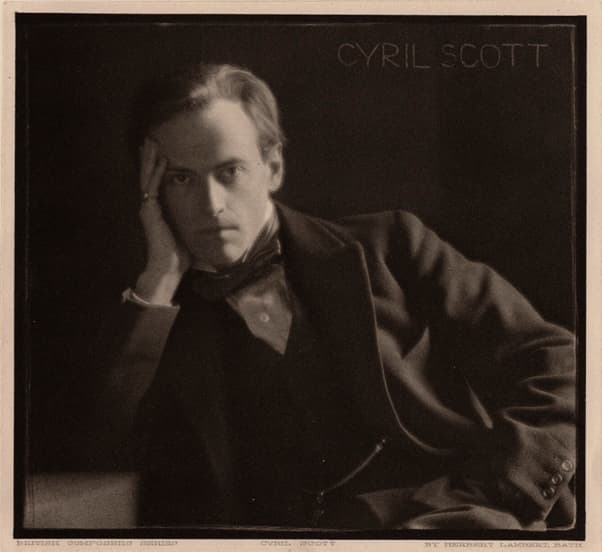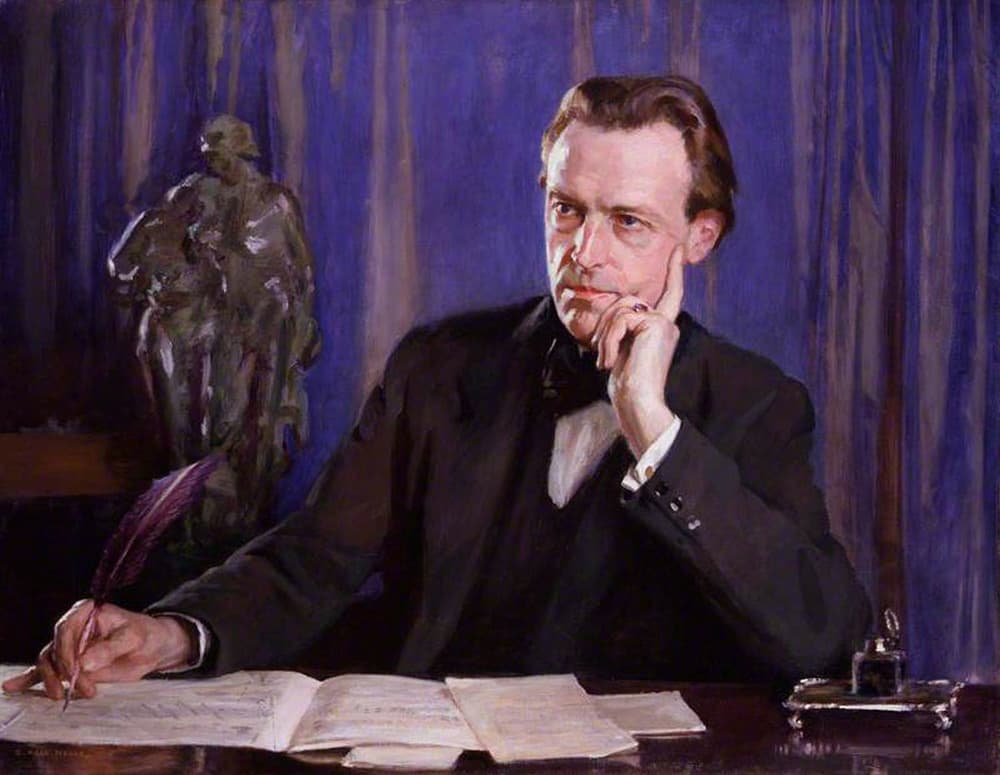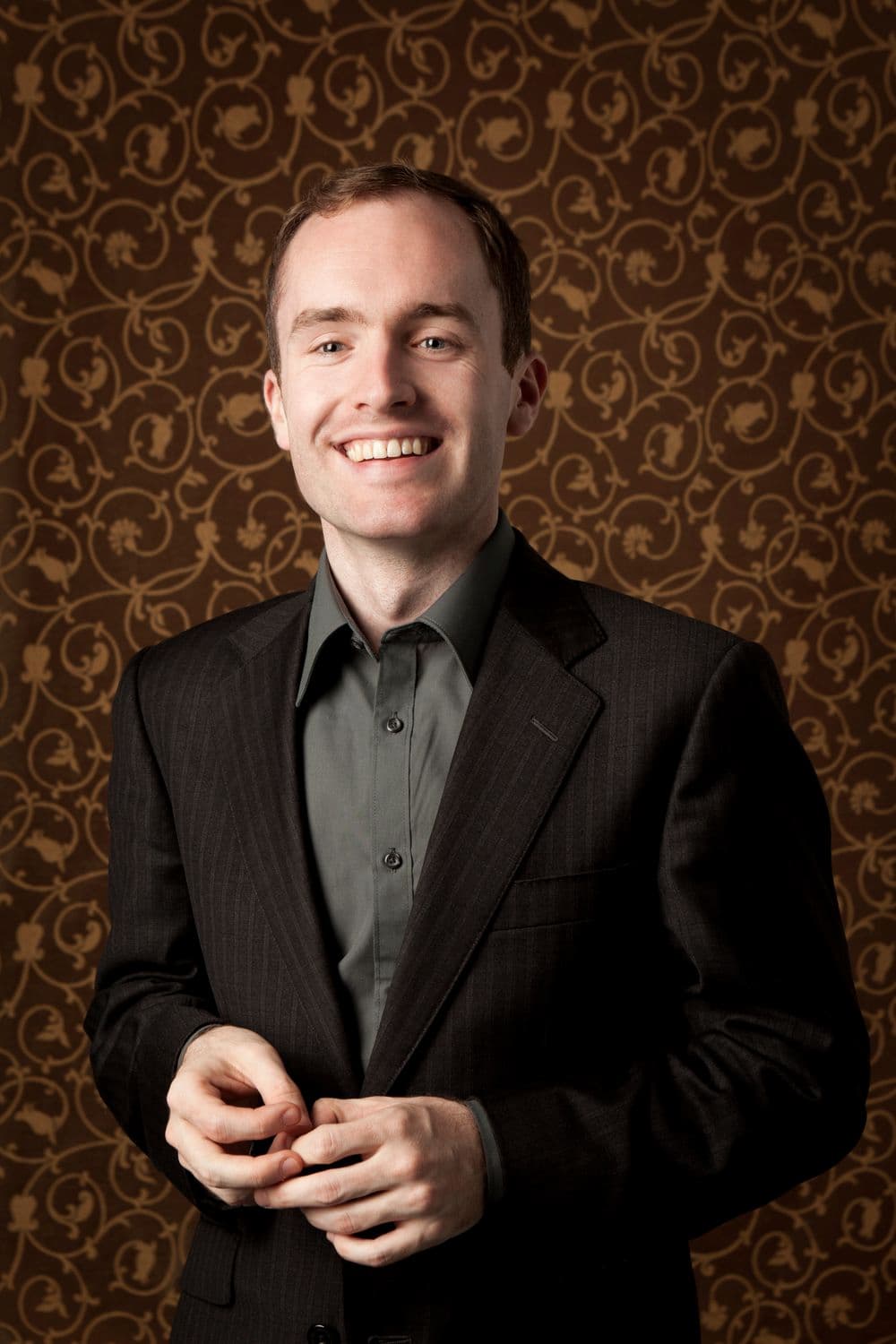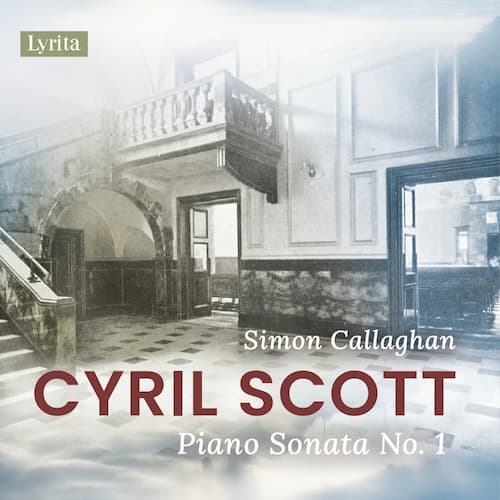British composer Cyril Scott (1879–1970) was one of the early 20th-century composers in England who looked beyond the classical tradition to forge his own path. Unfortunately, this singular vision has led to his being virtually dropped from the performance repertoire. Fortunately, pianist Simon Callaghan has picked up the lost world of Scott and brings us a recording of Scott’s influential Piano Sonata No. 1.

Herbert Lambert: Cyril Scott, 1922 (London: National Portrait Gallery)
Born in the UK, Scott’s musical talent was recognized, and at age 12, he was sent to Frankfurt to study at the Hoch Conservatory with Englebert Humperdinck and Lazzaro Uzielli, who had been a student of Clara Schumann’s. He returned after 18 months and then returned in 1895 to study again at the Hoch Conservatory with Iwan Knorr, director of the Conservatory. Knorr’s students included Ernest Bloch, Ernst Toch, and Hans Pfitzner, and the English-speaking composers from England and Australia who banded together as the ‘Frankfort Group’: Balfour Gardiner, Percy Grainger, Norman O’Neill, Roger Quilter, and Cyril Scott. He was influenced by the French composer’s predilections for Symbolist poetry, and his appreciation of impressionist music soon led him to be nicknamed the ‘English Debussy’.
His connections with the German poet Stefan George led to George helping organize the performance of his first symphony in 1899 in Darmstadt. Scott was later an important translator of George’s work. In 1903, he played his Piano Quartet with Fritz Kreisler, Emil Kreuz, and Ludwig Lebell in St. James’ Hall, marking his London debut.

George Hall Neale: Cyril Scott, 1930 (London: National Portrait Gallery)
Beyond composing, the other aspect of his life that has hindered his popularity was his interest in the occult. His friend from Frankfort, Peter Heseltine, changed his name to Peter Warlock when he took up study of the occult. This interest sidetracked Scott for a number of years, and he wrote ‘successfully and frequently’ about naturopathy, osteopathy, and homeopathy.
His Piano Sonata, Op. 66, of 1908, was praised by the composer Keikhosru Sorabji, another of the ultra-moderns in the UK in the early 20th century. Sorabji and Scott were not in step with the new music developments in the UK between 1910 and the 1930s. When Scott returned from Frankfort in 1901, he signed a publishing contract with Elkin and Co., who requested songs and piano pieces. Although he made his name on those light works, many in an impressionist style, Scott felt that they had ‘killed my reputation as a composer of large and more serious work’.
Cyril Scott: Two Pierrot Pieces, Op. 35, No. 1 – Pierrot triste
Scott considered the Piano Sonata his first important piano work, and yet, he had to pay for the engraving of the work (a friend covered the cost) for Elkin to publish. The publisher considered the work to be not only difficult and discordant but also unsaleable.
There are so many elements in the work that came from current musical fashion: continuous transformation, modality, whole-tone writing, avoidance of conventional cadences, and chord streams, all used within a chromatic harmony. One of its innovations, however, was the constant changing of time signature. Scott said this was inspired by Percy Grainger’s metrical experiments, and it is thought to have been an influence on similar time changes in Stravinsky’s Rite of Spring.
The final movement, a Fugue, was called ‘a masterpiece’ by Scott’s teacher, Knorr, and it’s filled with moving counterpoint and constantly developing development, a foreshadowing of later work by Sorabji and Messiaen.
Cyril Scott: Piano Sonata, Op. 66 Revised – IV. Fugue

Simon Callaghan
British pianist Simon Callaghan is known for championing piano rarities and bringing works that have fallen into obscurity back into the limelight. His performance on this recording is authoritative and accomplished, particularly in a work that requires a virtuosity that caused ‘pianist Scott [to curse] his composer self for having made it so difficult’.

Cyril Scott
Piano Sonata No. 1
Simon Callaghan
Lyrita Records: SRCD.437
Release date: 5 April 2024
Official Website
For more of the best in classical music, sign up for our E-Newsletter
